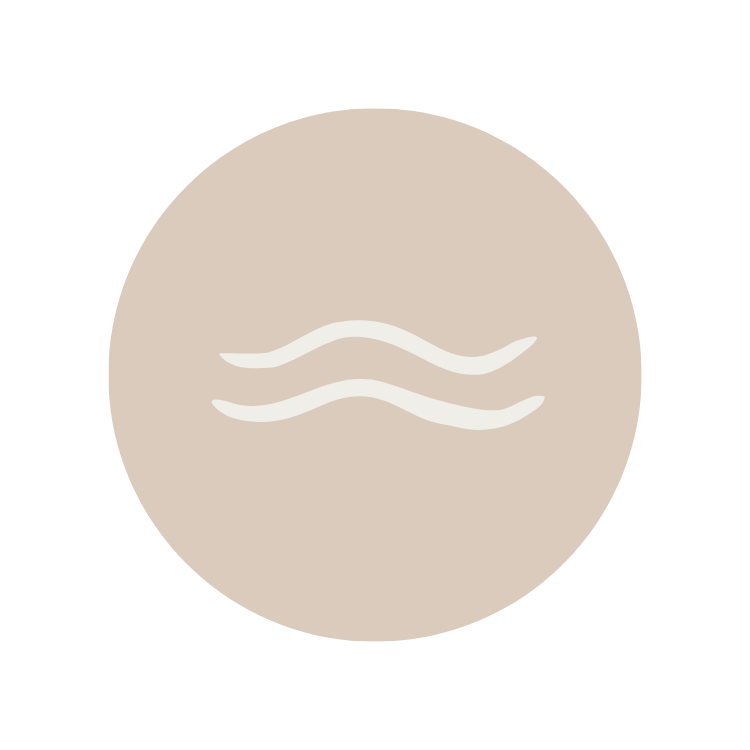What is acupuncture and Traditional Chinese Medicine?
Acupuncture consists of painlessly inserting extremely thin needles (as thin as a strand of hair!) into various locations in the body to stimulate physiological responses. Acupuncturists are trained in the extensive pathways of various organ systems along with the anatomical location and physiological function of hundreds of different points along those channels. Based on your syndrome, different points are used to stimulate specific channels to achieve a desired result. Acupuncture helps activate the parasympathetic nervous system (the healing state of the nervous system as opposed to fight or flight), increases blood flow to injured areas or reproductive organs for increased fertility and pain relief, sends the message to the brain to release pain relieving (endogenous opioids) and feel-good neurotransmitters such as endorphins and serotonin, boosts the immune system, decreases inflammation, and instills homeostasis in the body.
Acupuncture can treat a variety of maladies with causes stemming from emotional distress to physical trauma to genetic conditions. Over 200 different disorders are recognized by the World Health Organization as treatable by Acupuncture. Some of these include gynecology and fertility, neurological conditions such as headaches, paralysis, cardiovascular disorders, respiratory conditions such as sinusitis and asthma, digestive system disorders including ulcers and gastritis, urogenital disorders, joint disease, skin conditions, eye conditions, musculoskeletal disorders, psychological disorders and so much more!
For complete information from the World Health Organization’s Acupuncture Review and Analysis of Reports on Controlled Clinical Trials (scientific evidence) click here.
Traditional Chinese Medicine is the term that encompasses a multitude of modalities that include acupuncture, moxibustion, cupping, gua sha, Chinese herbal therapy, tui na massage, and more.
What Does Acupuncture Feel Like?
Everyone knows Acupuncture uses needles, and everyone knows what needles feel like. But this leads to the common misconception that they will automatically know what Acupuncture will feel like, which is entirely false. Acupuncture needles are an entirely different breed of needles, called filiform needles. Filiform needles are long, thin, flexible, and do not have the typical hollow center for injecting fluid, like the typical hypodermic needles used in hospitals. This means that Acupuncture needles feel COMPLETELY different from the needles everyone is used to. But what exactly do they feel like then?
Of course the sensation of needle insertion feels different depending on the location of the body. In more fleshy, muscular areas, the prick upon insertion may not be felt at all. In more thin and sensitive areas such as the hands, feet, and face, you may feel a slight prick. It is commonly described as a mosquito bite pinch, and only lasts a second.
But that's not all. There is a second type of sensation that sometimes occurs when the tip of the needle hits the correct spot. This sensation is called "de qi". For some Acupuncturists, it is a much sought after feeling that lets them know they found the correct Acupuncture point and that the desired effects of moving qi are taking place.
Other Acupuncturists find it as more of an optional feeling, since some patients do not report feeling this "de qi" sensation. So what does "de qi" feel like? It is commonly referred to as a heavy, deep, pulling, sharp, or slightly burning feeling. While all of this sounds pretty painful it is actually quite a painless phenomenon. When I ask my patients who feel their "de qi" if what they felt was painful, the most common response is, "No, not painful, but it felt....weird!" Many are quite amazed when I tell them that this what their qi feels like, the energetic force that is propelling life in their bodies!
In the few years I have been practicing Acupuncture, I have never encountered a person that tried it and stopped coming because of the "pain". In most cases, the reason they are coming to Acupuncture is ten times more painful than a tiny little needle! If you've had your share of mosquito bites throughout life, then you've already felt what Acupuncture truly feels like! Plus, once the needles are entirely in, you won't feel a thing!
Want to learn more about strategies you can use to fix your period problems?
📘Access my FREE e-book: How to Start Balancing your Hormones: Fix Your Period Without Overwhelm.
📗My Eating for Hormone Balance e-book breaks down everything you need to know about diet and your hormones. Learn about the basic macros, how to support gut health, what to do about inflammation, and more!
📞 Book a free 15 minute discovery call to see if we're a good fit to work together.
👩🏻💻 Book a 60-90 min initial consultation where we work 1:1 to dig deep into your health history to figure out the root causes of your period problems. From there I provide you with an individualized treatment plan and consistent support along the way.
🏫 Period University™ is the ultimate self-paced online course that teaches you EVERYTHING you need to know about your period and hormones.
In healing,
Allison
